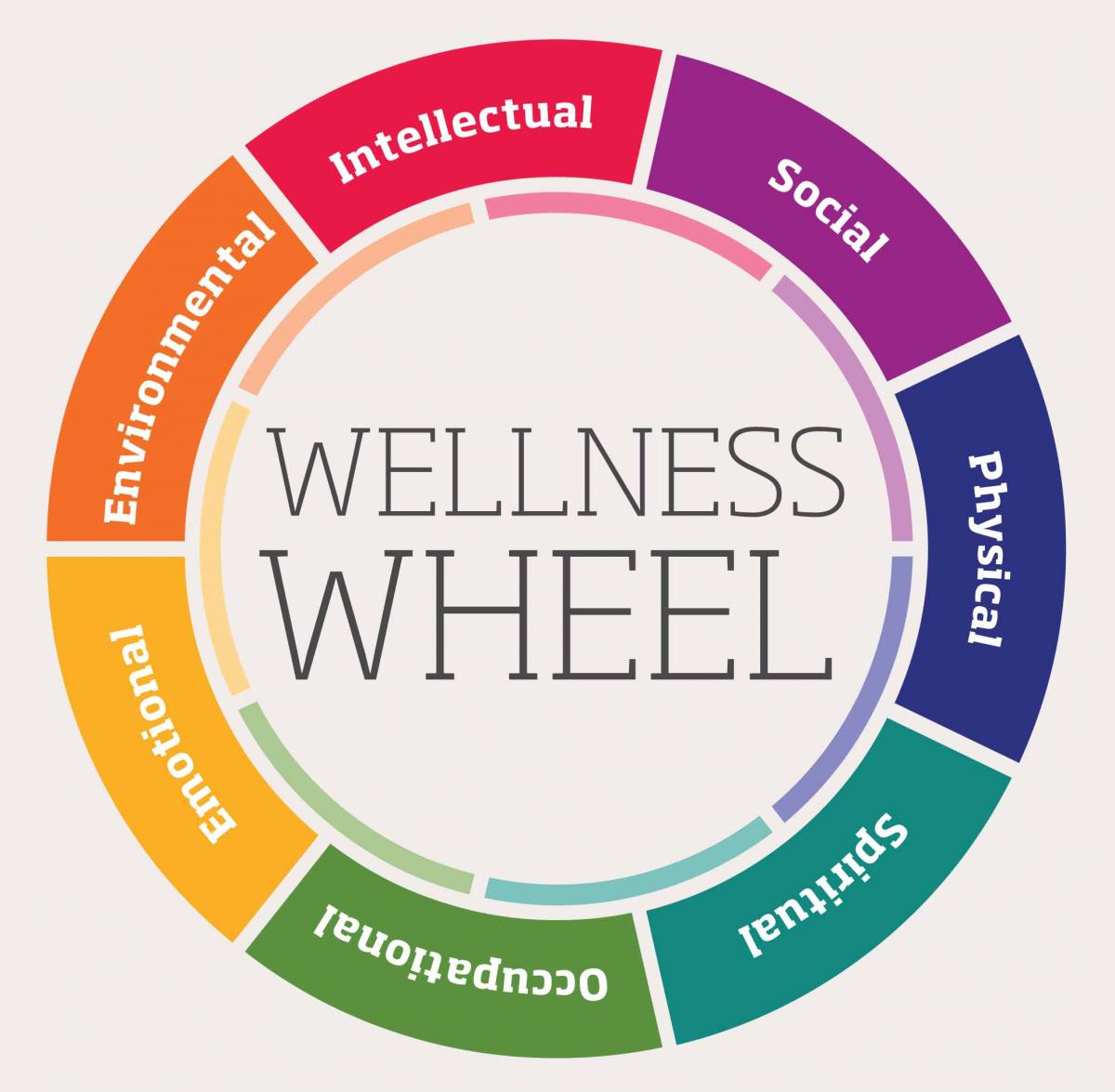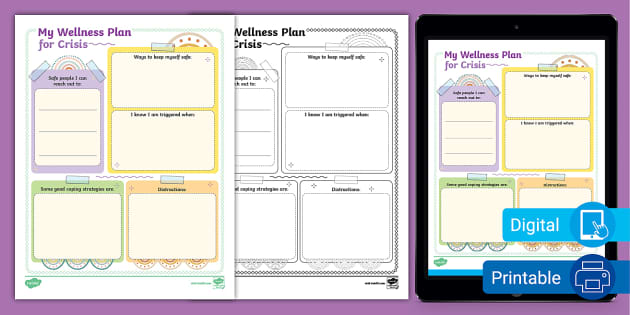Mental wellness is vital for everyone, especially retirees. As we age, maintaining mental health becomes crucial.
Also Read
Retirement often brings significant life changes. These changes can affect mental well-being. Retirees face unique challenges. Shifts in daily routines, social interactions, and purpose can impact mental health. This makes it essential to have a mental wellness plan. A solid plan helps manage stress, stay active, and maintain connections.
Engaging in activities, mindfulness, and socializing are key. Mental wellness plans can improve quality of life during retirement. They provide structure, purpose, and joy. Let’s explore how retirees can create effective mental wellness plans. These steps can make the golden years truly golden.

Credit: jamiehanley.com
Introduction To Mental Wellness
Retirement is a significant milestone in life. It often brings a mix of excitement and uncertainty. Amidst planning finances and activities, mental wellness can sometimes be overlooked. It is crucial to focus on mental wellness during this phase. It ensures a fulfilling and joyful retirement. Let’s delve into the importance of mental health and explore mental wellness in retirement.
Importance Of Mental Health
Mental health is essential for overall well-being. It affects how we think, feel, and act. Good mental health helps manage stress and relate to others. It also aids in making decisions. For retirees, maintaining mental health can enhance quality of life. It keeps the mind active and engaged. Ignoring mental health can lead to issues like anxiety and depression. So, prioritizing mental health is vital.
Mental Wellness In Retirement
Retirement changes daily routines and social interactions. These changes can impact mental wellness. Staying mentally active is key. Engage in hobbies or learn new skills. Social connections are also important. Join clubs or volunteer. Physical activity contributes to mental wellness too. Regular exercise boosts mood and reduces stress. Create a balanced routine. Include activities that bring joy and purpose.
Common Mental Health Challenges
Retirement is a major life change. Many retirees face common mental health challenges. Understanding these challenges helps in creating effective mental wellness plans.
Depression
Depression is a serious mental health issue for retirees. It can stem from the loss of routine and purpose. Many retirees also face social isolation. This can lead to feelings of sadness and hopelessness.
Symptoms of depression include:
- Persistent sadness
- Loss of interest in activities
- Fatigue
- Changes in appetite
- Sleep disturbances
Early detection and treatment are crucial. Retirees should seek professional help if they experience these symptoms.
Anxiety
Anxiety is another common issue among retirees. The transition to retirement can be stressful. Financial worries, health concerns, and changes in daily routines can contribute to anxiety.
Common symptoms of anxiety include:
- Excessive worry
- Restlessness
- Difficulty concentrating
- Muscle tension
- Sleep problems
Managing anxiety involves various strategies. These can include relaxation techniques, physical activity, and professional support.
Creating A Mental Wellness Plan
As retirees, mental wellness is just as important as physical health. Creating a mental wellness plan can help maintain a positive outlook and mental sharpness. This plan includes setting goals and building healthy habits. Let’s explore how to get started.
Setting Goals
Setting clear and achievable goals is crucial. Goals give retirees a sense of purpose and direction. Here are some steps to follow:
- Identify your interests: Think about hobbies or activities you enjoy.
- Set realistic targets: Make sure your goals are attainable.
- Create a timeline: Decide when you want to achieve these goals.
- Track progress: Keep a journal or use an app to monitor your achievements.
For example, if you love gardening, set a goal to grow a new type of plant each month. This keeps you engaged and motivated.
Building Healthy Habits
Healthy habits contribute to mental wellness. Here are some habits to consider:
- Exercise regularly: Physical activity boosts mood and energy levels.
- Eat a balanced diet: Good nutrition supports brain health.
- Stay socially active: Engage with friends and family to reduce loneliness.
- Practice mindfulness: Activities like meditation can reduce stress.
Try to incorporate these habits into your daily routine. For instance, join a local walking group or attend a cooking class. Small changes can lead to significant improvements in mental wellness.
Developing a mental wellness plan is a journey. Start with setting goals and building healthy habits. This approach helps retirees live a fulfilling and joyful life.
Staying Physically Active
Staying physically active is vital for retirees. It boosts mental health and overall well-being. Regular exercise helps maintain mobility, strength, and a positive outlook. It’s not just about the body. Being active also sharpens the mind, reducing the risk of mental decline.
Exercise Routines
Developing a consistent exercise routine can be very beneficial. Here are some simple and effective exercises:
- Walking: Ideal for all fitness levels. Aim for 30 minutes daily.
- Yoga: Enhances flexibility and reduces stress. There are many beginner-friendly classes available.
- Strength Training: Lifting light weights improves muscle strength. It also helps in maintaining bone density.
- Swimming: Great for joints. It provides a full-body workout without the strain.
Outdoor Activities
Engaging in outdoor activities can be very refreshing. It allows retirees to connect with nature while staying active. Here are some suggestions:
- Gardening: A gentle way to stay active and enjoy nature. It also improves mood.
- Bird Watching: Requires minimal physical effort but keeps the mind engaged.
- Cycling: A low-impact exercise that’s fun. Great for exploring the neighborhood.
- Hiking: Perfect for those who love adventure. It can be done on various terrains, offering different levels of difficulty.
Maintaining Social Connections
Maintaining social connections is crucial for retirees. It helps combat loneliness and keeps the mind active. Social interactions can improve mental health and provide a sense of belonging. Retirees should make an effort to stay connected with others.
Joining Clubs
Joining clubs is a great way for retirees to meet new people. Many communities offer clubs for different interests. There are book clubs, gardening clubs, and many more. These clubs provide opportunities for social interaction and mental stimulation.
Being part of a club also gives retirees a sense of purpose. They can share their hobbies and learn new skills. Clubs often organize events and gatherings, making it easier to stay connected. Joining a club can significantly enhance social well-being.
Volunteer Work
Volunteer work is another excellent way for retirees to stay socially connected. Volunteering provides a chance to meet like-minded people. It also allows retirees to give back to the community. This can be very fulfilling and rewarding.
There are many volunteer opportunities available. Retirees can help at local schools, hospitals, or community centers. Volunteering keeps the mind engaged and provides a routine. It also fosters a sense of accomplishment and community involvement.

Credit: www.pazcare.com
Engaging In Lifelong Learning
Engaging in lifelong learning can enrich your retirement years. It keeps your mind active and helps you stay connected. Learning new things can also bring joy and satisfaction. Many retirees find that continued learning improves their mental wellness. This section explores ways to engage in lifelong learning after retirement.
Educational Opportunities
Consider enrolling in local community college classes. Many offer courses that are free or low-cost for seniors. Online courses are also an option. Websites like Coursera and Khan Academy provide many subjects to explore. Libraries often have free workshops and lectures. These can be a great way to learn and meet new people.
Hobbies And Interests
Pursue hobbies that stimulate your mind. Gardening, painting, and crafting are great options. These activities are not only fun but also keep your brain active. Joining clubs related to your hobbies can also be beneficial. Book clubs, knitting circles, and gardening clubs are good examples. These groups offer both learning and social interaction.
Managing Stress And Anxiety
Retirees can benefit from mental wellness plans to manage stress and anxiety. These plans offer relaxation techniques and social activities. Enjoy a peaceful and fulfilling retirement.
Managing stress and anxiety is crucial for retirees. Retirement brings new challenges and changes. Many retirees face worries about health, finances, or loneliness. Addressing these concerns helps maintain a peaceful and happy life.Relaxation Techniques
Relaxation techniques can reduce stress and anxiety. Deep breathing exercises are simple yet effective. Inhale slowly through the nose, hold, and exhale through the mouth. Repeat this several times. Meditation also helps. Find a quiet place, sit comfortably, and focus on your breath. Let go of distracting thoughts. Even a few minutes of meditation daily can make a big difference. Gentle yoga combines physical movement with relaxation. It strengthens muscles and promotes a calm mind. Many community centers offer classes tailored for seniors.Professional Support
Sometimes, professional support is necessary. Therapists and counselors specialize in helping retirees manage stress and anxiety. They provide valuable tools and techniques. Speaking with a mental health professional offers a safe space to express feelings. They help identify stress sources and develop coping strategies. Regular sessions can lead to significant improvements. Support groups also play a vital role. Joining a group of peers facing similar challenges fosters a sense of community. Sharing experiences reduces feelings of isolation and helps build connections. In conclusion, managing stress and anxiety is essential for retirees. Relaxation techniques and professional support pave the way for a happier, healthier retirement.
Credit: www.twinkl.co.th
Healthy Lifestyle Choices
Maintaining mental wellness during retirement requires a focus on healthy lifestyle choices. These choices can greatly impact a retiree’s overall well-being. Let’s explore two key areas: a balanced diet and adequate sleep.
Balanced Diet
A balanced diet is crucial for mental wellness. Eating a variety of foods ensures the body gets essential nutrients. Here are some tips:
- Include fruits and vegetables in every meal.
- Choose whole grains over processed grains.
- Incorporate lean proteins such as chicken, fish, and beans.
- Limit sugar and salt intake.
- Stay hydrated by drinking plenty of water.
These dietary changes can improve mood and energy levels. They also help maintain a healthy weight, reducing the risk of chronic diseases.
Adequate Sleep
Getting adequate sleep is essential for mental health. Quality sleep helps the brain function properly. Here are some tips for better sleep:
- Stick to a regular sleep schedule.
- Create a relaxing bedtime routine.
- Make your bedroom comfortable and free of distractions.
- Avoid caffeine and heavy meals before bedtime.
- Stay active during the day.
Following these tips can improve sleep quality. Good sleep boosts memory, concentration, and overall mental clarity.
By focusing on these healthy lifestyle choices, retirees can enjoy a fulfilling and mentally healthy retirement.
Monitoring And Adjusting The Plan
Monitoring and adjusting a mental wellness plan is crucial for retirees. It ensures the plan remains effective and meets their evolving needs. Regular check-ins and adapting to changes can help maintain mental wellness during retirement.
Regular Check-ins
Regular check-ins are essential to track progress. Schedule weekly or monthly meetings with a mental health professional. This helps identify any issues early.
Use a journal to note feelings, moods, and experiences. This can provide valuable insights. Share these notes during check-ins for better guidance.
Consider involving family members or close friends. They can offer support and observe changes you might miss. Open conversations about your mental health can foster a supportive environment.
Adapting To Changes
Retirement brings many changes. Your mental wellness plan should be flexible. Adjust activities and routines as needed to stay engaged and happy.
Stay open to trying new activities. Join clubs, take classes, or volunteer. These can provide social interaction and mental stimulation.
Health changes might require adjustments too. Physical limitations or new health conditions can affect mental well-being. Consult professionals to modify your plan accordingly.
Finally, reassess goals regularly. What was important at the start of retirement might change. Ensure your mental wellness plan aligns with your current priorities.
Frequently Asked Questions
What Is A Mental Wellness Plan For Retirees?
A mental wellness plan for retirees is a structured approach. It focuses on maintaining mental health and emotional well-being. It includes activities, routines, and support systems.
Why Is Mental Wellness Important For Retirees?
Mental wellness is crucial for retirees to enjoy their golden years. It helps prevent depression and anxiety. It promotes a fulfilling and active lifestyle.
How Can Retirees Stay Mentally Active?
Retirees can stay mentally active by engaging in hobbies. They can also participate in social activities. Learning new skills is beneficial too.
What Activities Promote Mental Wellness For Retirees?
Activities like reading, puzzles, and socializing promote mental wellness. Physical exercises like walking and yoga are also helpful. Volunteering and community involvement are beneficial too.
Conclusion
Maintaining mental wellness in retirement is essential. Simple plans can make a big difference. Stay active, both physically and mentally. Social connections are vital. Keep in touch with family and friends. Explore new hobbies and interests. Seek professional help if needed.
Remember, mental health matters. Small steps lead to lasting well-being. Enjoy your retirement with a healthy mind.


